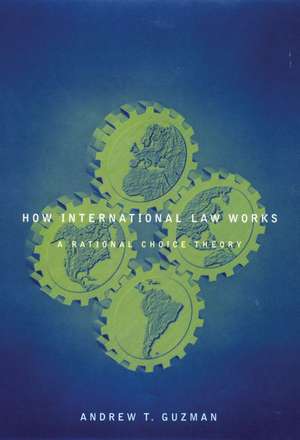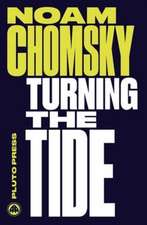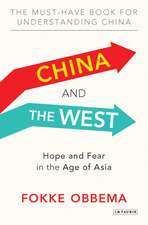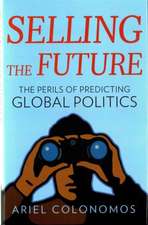How International Law Works: A Rational Choice Theory
Autor Andrew Guzmanen Limba Engleză Hardback – 17 ian 2008
Preț: 326.77 lei
Preț vechi: 375.95 lei
-13% Nou
Puncte Express: 490
Preț estimativ în valută:
62.54€ • 64.45$ • 52.80£
62.54€ • 64.45$ • 52.80£
Carte tipărită la comandă
Livrare economică 18-24 februarie
Preluare comenzi: 021 569.72.76
Specificații
ISBN-13: 9780195305562
ISBN-10: 0195305566
Pagini: 272
Ilustrații: 2 line illustrations
Dimensiuni: 239 x 165 x 20 mm
Greutate: 0.59 kg
Editura: Oxford University Press
Colecția OUP USA
Locul publicării:New York, United States
ISBN-10: 0195305566
Pagini: 272
Ilustrații: 2 line illustrations
Dimensiuni: 239 x 165 x 20 mm
Greutate: 0.59 kg
Editura: Oxford University Press
Colecția OUP USA
Locul publicării:New York, United States
Recenzii
Guzman's book...presents an impressive, theoretically sound and practically useful theory of international law...Guzman's smartly designed rational choice theory of international law actually helps to explain the role of law in international relations in many situations. This is so valuable compared to some bold theses about international law's irrelevance which carry little empirical support and whose basic assumptions are fragile not least because of their rigidity...In conclusion, Guzman's book should be in a position to rehabilitate the damaged reputation of rational choice as a way of theorizing about international law. I am convinced that many members of the "invisible college" will appreciate the quantum of solace provided by Guzman's theory, even those whose principal hope is for the solace of a quantum theory of international law.
Notă biografică
Andrew T. Guzman joined the University of California-Berkeley Law School in 2004. Prior to this, he was a visiting assistant professor at the University of Chicago Law School and served as a law clerk to the Honorable Juan R. Torruella, Chief Judge of the First Circuit Court of Appeals in San Juan, Puerto Rico.












